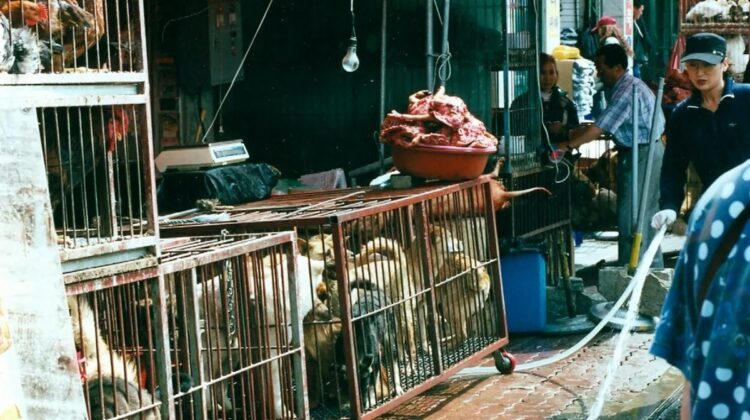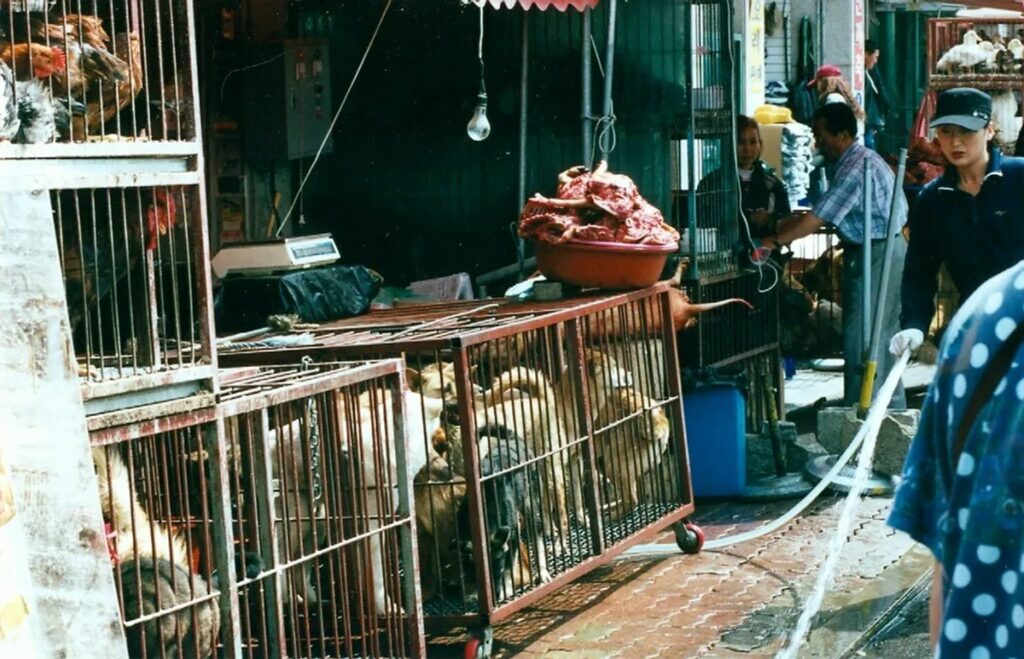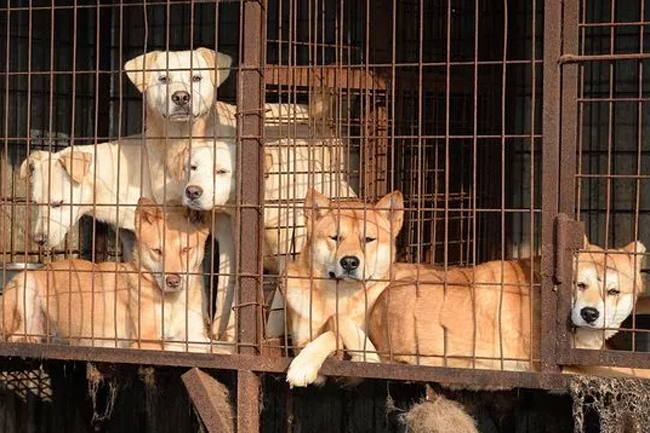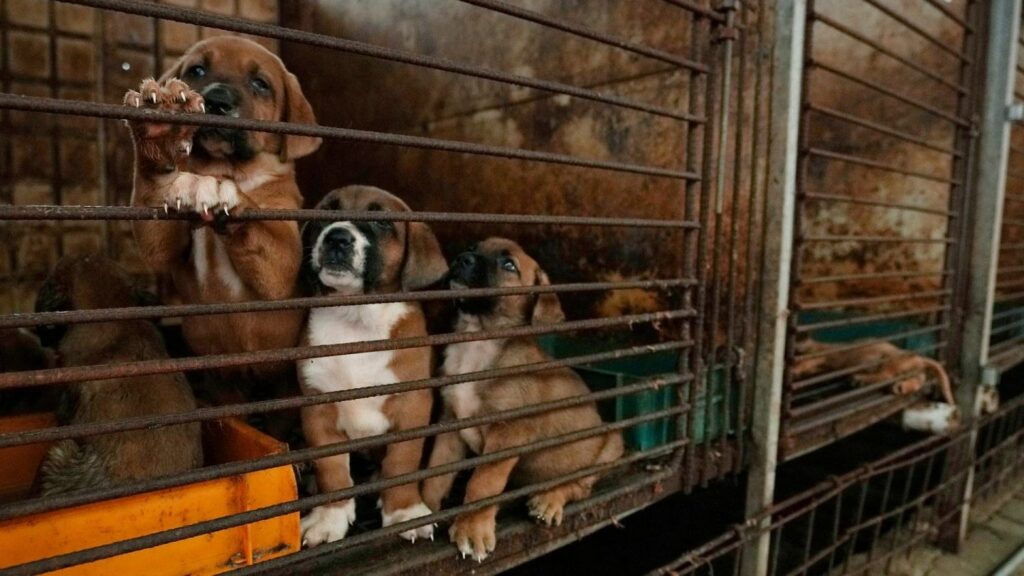
The change reflects the different attitudes to eating dog meat between the older and younger generations.
South Korea has announced a new law to end the sale and slaughter of dogs for their meat by 2027, marking a significant shift in cultural practices and reflecting changing attitudes between generations.
As of 2023, South Korea is home to approximately 1,600 dog meat restaurants and 1,150 dog farms, according to BBC News. The consumption of dog meat, particularly in the form of a stew called “boshintang,” is seen as a delicacy among the older generation. However, this practice is becoming less popular with younger South Koreans.

Image Credit: Kim Bartlett – Animal People, Inc via Flickr (CC BY-NC 2.0)
The new legislation will ban the raising, slaughtering, distribution, and sale of dogs for their meat. Violators of this ban could face severe penalties: up to three years in prison or a maximum fine of 30 million won ($23,000) for slaughtering dogs, and a two-year sentence for selling or raising dogs for meat.
While the consumption of dog meat will not be made illegal, the law aims to phase out the industry by 2027, giving those involved time to transition to other forms of employment. The government has pledged support for those affected, though specific plans have yet to be detailed.

This legislative change underscores a broader shift in societal values, particularly among the younger generation who increasingly view dogs as pets rather than food. A Gallup Korea survey reported by CNN indicates that the percentage of people who had eaten dog meat in the last year dropped from 27% in 2015 to 8% in 2022.
However, the law has sparked mixed reactions. Traditionally, dog meat has been consumed in the summer as a way to beat the heat and as an affordable protein source. Kim Seon-ho, an 86-year-old resident of Seoul, voiced his opposition to the BBC, arguing that banning dog meat is akin to banning other traditional meats like beef.

On the other hand, animal welfare advocates are celebrating the new law. JungAh Chae, executive director of Humane Society International/Korea, expressed her delight to the Guardian, calling the ban a historic victory for animal rights activists who have campaigned for this change for many years. “This is history in the making,” she said, emphasizing the determination and passion of the animal protection movement in South Korea.

Leave a Reply